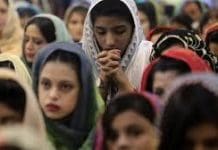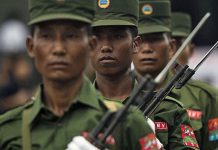By Martin Roth, BosNewsLife Senior Columnist

SEOUL/PYONGYANG (BosNewsLife Columns)– Koreans think big. Many churches in South Korea are, from this year, putting aside one per cent of their annual income for a special fund to help advance unification with North Korea and build up the church there.
Given that some South Korean churches are huge, this is significant. It means that when the two Koreas are reunited – as surely they will be – an enormous amount of money will be available for evangelism. The once-powerful North Korean church could flourish again.
For example, Seoul’s Yoido Full Gospel Church – the largest church in the world, with some 800,000 members – is one of those that has joined the cause. Some reports put its annual income as around $200 million. Now it will be devoting one per cent of this for the new unification fund.
I have seen many times the tendency of Koreans to think big. I was working as a journalist in Tokyo in the early 1980s when I was commissioned by the Wall Street Journal to spend two weeks in Seoul interviewing the heads of government and industry for a major report on the country.
Almost without exception those I met told me how South Korea was going to overtake Japan in electronics and many other fields. It seemed at the time the kind of pipedream that springs from an inferiority complex. But today companies like Samsung have easily overtaken Japanese (and Western) rivals in many key product areas like mobile phones and colour televisions.
TOO BIG?
Yet, I believe Koreans sometimes think too big. I once wrote about General Pil Sup Lee, former chairman of the South Korean Joint Chiefs of Staff and a devout Christian. More than a decade ago he told a Christian conference of a plan to evangelize the nation through the military.
Each year 350,000 young Korean men are called up for their compulsory military service. The aim was that some 60 per cent would become believers by the end of their service. When returning home, they would then spread the Word among their families.
The goal was that the ratio of Christians in South Korea would rise to about 75 per cent of the population by 2020, from around 30 per cent at present. This is big, big thinking. And with the target date just five years away it doesn’t look remotely achievable.
But North and South Korea will surely one day be reunited, and the church in the North could then bloom as before.Students of Christian history recall that thanks to the Great Pyongyang Revival starting in the early 1900s, Pyongyang, North Korea’s capital, became known as “Jerusalem of the East.”
This might be nothing compared to what we are set to witness once the North regains freedom, as huge amounts of money and other resources pour in. In my view, it could shake the world. Because, yes, Koreans think big. But God thinks even bigger.
(Martin Roth (www.authormartinroth.com) is an Australian journalist and a former Tokyo-based foreign correspondent. He is the author of “Journey Out Of Nothing: My Buddhist Path to Christianity” and of the Brother Half Angel series of thrillers, which focus on the persecuted church. BosNewsLife Columns distributes opinionated columns and commentaries providing a fresh perspective on issues in the news. They do not necessarily reflect the opinion of BosNewsLife News Agency or its parent company.)









